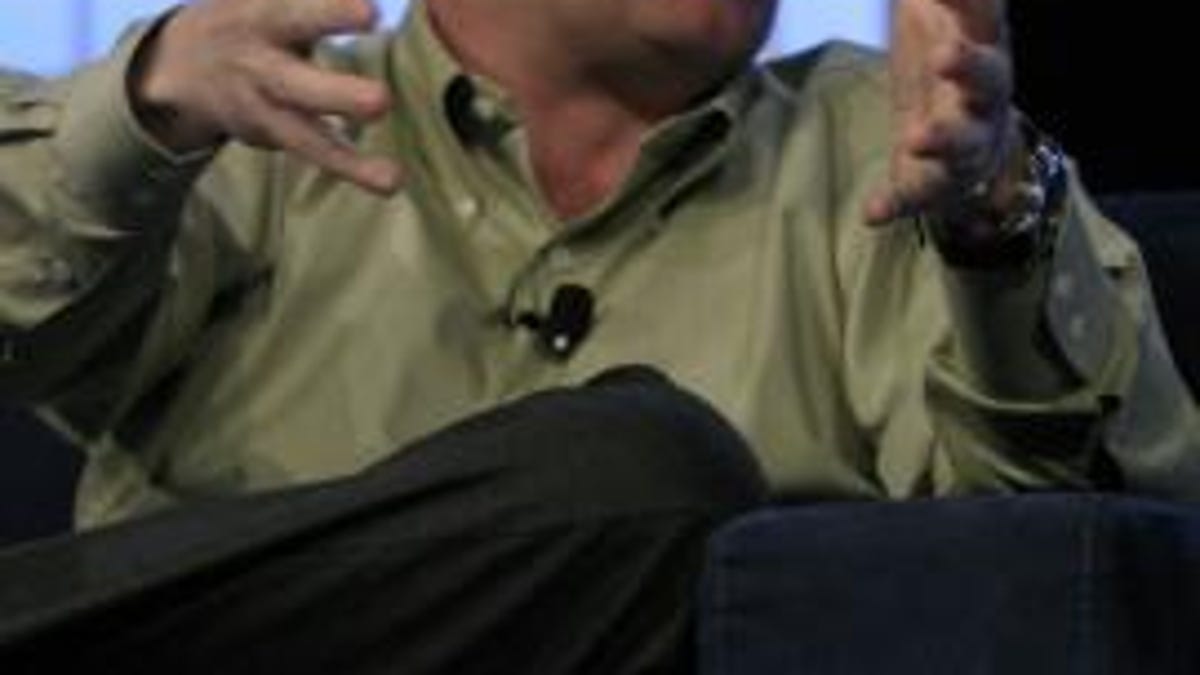Marc Andreessen launches new venture fund
The $300 million Andreessen Horowitz fund will back companies large and small, but only those focused on the Internet.

Marc Andreessen, founder of Netscape and co-founder of Opsware, and Ben Horowitz, also co-founder of Opsware, are launching on Monday a new venture fund, cleverly named Andreessen Horowitz (previous story). The fund's mission is financially broad but technologically narrow. Andreessen told me the $300 million fund will invest from $50,000 to $5 million in start-ups, which means it's part angel fund and part typical venture capital firm.
Technologically, Andreessen is keeping things in one wheelhouse: his. "We're ruling out products we don't understand," he says. So no clean tech, no energy start-ups, no green companies, biotech, life sciences, car companies, content, or space vehicles (Andreessen must know that I have a profile of Steve Jurvetson upcoming). Good technologies for the fund include consumer Internet companies, cloud computing, and Web infrastructure plays. Andreessen Horowitz will headquarter on Sand Hill Road in Palo Alto, Calif., and will invest in "almost nothing" outside of Silicon Valley.
The firm will invest in what Andreessen calls "technical founders," those entrepreneurs who get their hands dirty when developing products, and not business wonks who tend to hire developers to implement their vision. "We love it when founders want to be CEOs," Andreessen says.
The fund has made no investments yet, but privately Andreessen has experience as an angel investor. He has put his own money in Twitter, LinkedIn, Aliph, Digg, and Delicious (which was acquired by Yahoo).
What Andreessen knows
I told Andreessen that I thought it was an awkward time to launch a new venture fund. Many of the funds launched during the last bubble (1999) are, by any metric, failing. Andreessen, in fact, quotes stats that show that only about 10 to 20 of the approximately 700 extant funds deliver good returns. With money tightening, there's simply no way the majority of funds--which, to liberally paraphrase Andreessen, suck--will be able to raise money to keep going.
"The top firms have the ability to find and invest in the good companies, " Andreessen said. "We put the case forward that we'll be able to find them."
But even so, I asked him, aren't the exits, or liquidity events, closed for venture-funding companies now and for the foreseeable future? Andreesen: "I don't think there's an exit problem. I think there's a valuable company shortage." He pointed out that there are exits, just not many of them: Data Domain is in the process of being sold in a bidding war for about $2 billion; Pure Digital was sold for $590 million to Cisco Systems; Opsware (Andreessen's company) got picked up by Hewlett-Packard for $1.6 billion; and OpenTable went public and LogMeIn filed for IPO recently.
"The problem is that there aren't valuable companies being formed. And there never have been," Andreessen continues. There are, he says, on average 15 tech companies launched a year that will ultimately do $100 million a year in revenues, and these companies are responsible for 97 percent of the returns in the venture industry overall. "There just aren't that many great founders."
The model for Andreessen Horowitz, when it picks up a company early, will be to give a small company a small amount of money--enough to last three to five engineers nine to twelve months--while they are building their product and have minimal expenses. New Web-based development and hosting products make development fast and cheap. Andreessen won't take a board seat early. He doesn't believe a company needs a board at all until they take in much more money.
Once the product is built, then he'll follow on with $5 million to $10 million, and help the company transition to one with a sales staff, a board, and the headaches of marketing and human resources.
Nothing that Andreessen Horowitz is doing in its firm is revolutionary. The timing is odd, but the philosophies of the fund are straightforward. As is the case for all tech entrepreneurs, the vision is just the opening of this story. The rest of the tale is the execution. We don't know yet if Andreessen Horowitz will pick winner entrepreneurs and companies, although with the firm's connections and Andreessen's history, it's got a chance.

